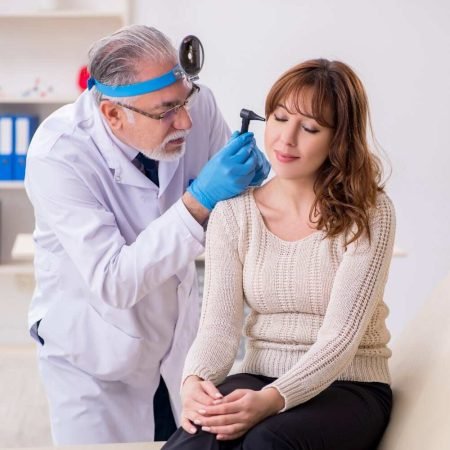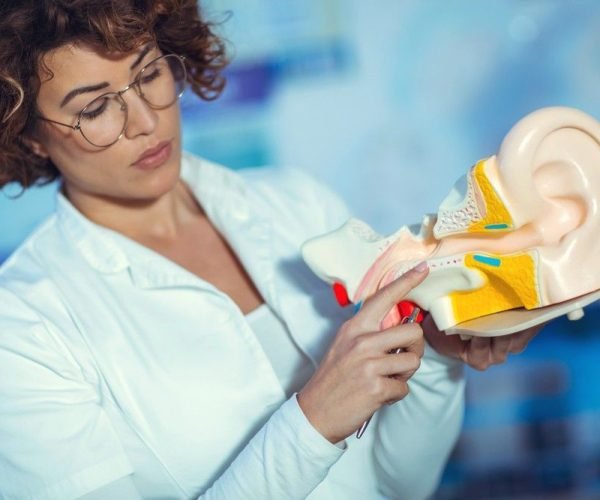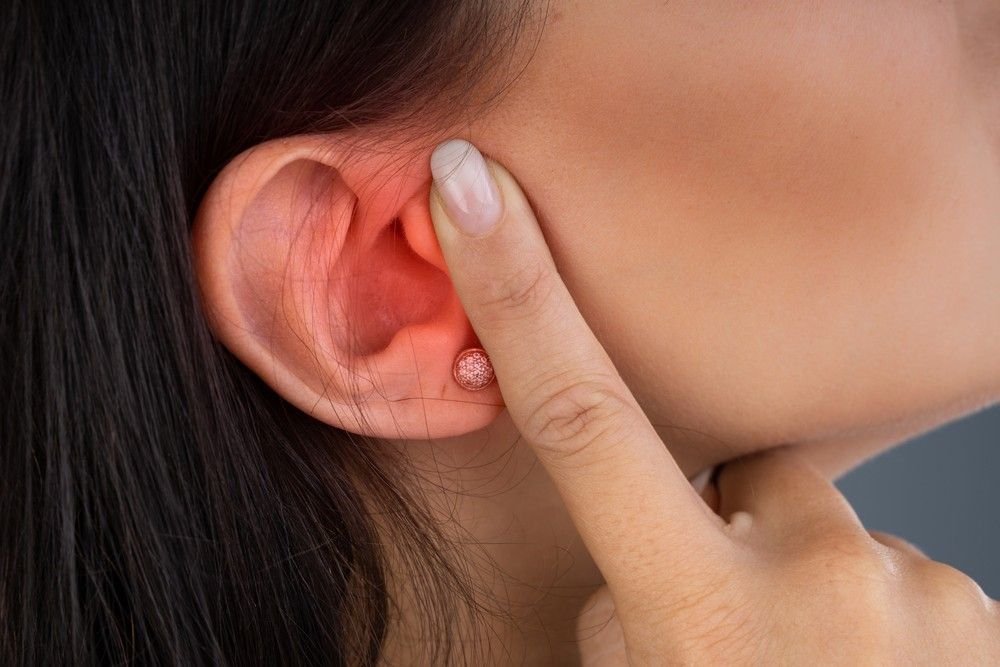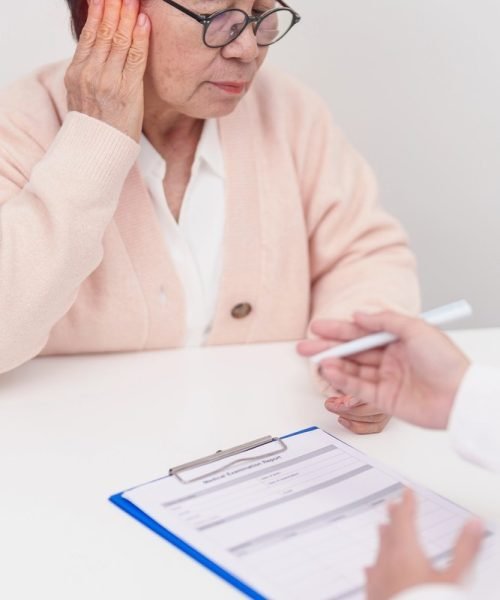Ear Pain
- Ear Pain Explained: Causes, Symptoms & Relief
- Understand & Treat Ear Pain Effectively
- A Complete Guide to Ear Pain: What You Need to Know
- Say Goodbye to Ear Pain: Know the Causes, Find the Cure

Ear Pain
- Ear Pain Explained: Causes, Symptoms & Relief
- Understand & Treat Ear Pain Effectively
- A Complete Guide to Ear Pain: What You Need to Know
- Say Goodbye to Ear Pain: Know the Causes, Find the Cure


Comprehensive Guide to Ear Pain: Causes, Symptoms, and Treatment
Ear pain, medically known as otalgia, is a common issue that can affect individuals of all ages. The discomfort can range from mild to severe and can interfere with daily activities such as eating, speaking, and sleeping. While some cases of ear pain resolve on their own, others are indicative of underlying conditions that may require medical attention. Identifying the root cause and understanding the symptoms can help individuals better manage ear pain and prevent it from becoming a recurring issue.
Common Causes of Ear Pain:
Ear pain can originate from a variety of conditions. Some causes are directly related to issues in the ear, while others can stem from areas nearby, such as the throat, jaw, or sinuses. Identifying the specific cause is crucial for determining the right course of treatment. Here’s a detailed look at the most frequent causes of ear pain.
Overview: Ear infections are among the most common causes of ear pain. They can occur in different parts of the ear, including the outer ear, middle ear, and inner ear.
• Outer Ear Infection (Swimmer’s Ear): This occurs when water gets trapped in the ear canal, creating a moist environment that encourages bacterial or fungal growth.
◦ Symptoms: Itching, redness, swelling, and discomfort in the ear.
◦ Treatment: Typically, antibiotics or antifungal ear drops are used to treat the infection.
◦ What NextGen Can Do: Our walk-in clinic can provide diagnosis and prescribe medications such as antibiotics or antifungal treatments to clear the infection.
• Middle Ear Infection (Otitis Media): Caused by respiratory infections or colds, otitis media leads to fluid buildup behind the eardrum.
◦ Symptoms: Earache, fever, muffled hearing, and sometimes fluid drainage.
◦ Treatment: Antibiotics or pain relief medications may be prescribed.
◦ What NextGen Can Do: We can diagnose middle ear infections and offer prescriptions for antibiotics or pain management.
• Inner Ear Infections: Less common but more serious, these can cause vertigo and balance issues.
◦ Symptoms: Severe pain, dizziness, nausea, and hearing loss.
◦ Treatment: Antiviral or antibiotic medications may be required.
◦ What NextGen Can Do: Our urgent care team can assess the severity of inner ear infections and refer patients to specialists if needed.
Overview: The ears, nose, and throat are all connected, and infections in one of these areas can affect the others.
• Sinus Infections and Colds: When sinuses become inflamed, they can cause pressure to build up in the ears.
◦ Symptoms: Pain, fullness, or pressure in the ear, sometimes along with congestion or a sore throat.
◦ Treatment: Decongestants, nasal sprays, and pain relievers can help alleviate symptoms.
◦ What NextGen Can Do: We can offer treatments to relieve sinus pressure and congestion, which can help prevent ear pain.
• Postnasal Drip and Congestion: Excess mucus from a sinus infection can block the Eustachian tubes and cause ear pain.
◦ Symptoms: Fullness in the ears, congestion, and discomfort.
◦ Treatment: Nasal decongestants and antihistamines.
◦ What NextGen Can Do: Our clinic can provide medications to reduce mucus buildup and relieve symptoms.
Overview: Earwax naturally protects the ear, but an excessive buildup can cause discomfort.
• Hardened or Impacted Earwax: If too much earwax accumulates, it can press against the eardrum, leading to pain.
◦ Symptoms: Earache, muffled hearing, or a sensation of fullness.
◦ Treatment: Earwax removal using special tools or ear drops.
◦ What NextGen Can Do: Our medical team can safely remove impacted earwax and offer advice on preventing further blockages.
Overview: Sudden shifts in air pressure can affect the ears and lead to pain.
• Barotrauma from Altitude Changes: Activities like flying or scuba diving can create pressure imbalances in the ears.
◦ Symptoms: Pain, popping sensations, and temporary hearing loss.
◦ Treatment: Chewing gum, yawning, or swallowing can help equalize pressure.
◦ What NextGen Can Do: Our walk-in clinic can provide relief with decongestants or offer advice on managing pressure changes during travel.
Overview: Issues with the jaw or teeth can cause referred pain in the ears.
• Temporomandibular Joint (TMJ) Dysfunction: TMJ disorders can lead to pain in the jaw that radiates to the ear.
◦ Symptoms: Jaw stiffness, clicking sounds, and ear pain.
◦ Treatment: Pain management, physical therapy, or dental treatments.
◦ What NextGen Can Do: Our clinic can assess and manage TMJ-related pain, offering solutions for relief.
• Dental Problems: Dental issues like impacted wisdom teeth or infections can trigger ear pain.
◦ Symptoms: Tooth pain radiating to the ear.
◦ Treatment: Dental care to address infections or alignments.
◦ What NextGen Can Do: While we don't offer dental services, we can refer you to a dentist if necessary.
Overview: External objects or injuries to the ear canal can cause inflammation and discomfort.
• Foreign Objects in the Ear: Common in children, objects like beads or small toys can become lodged in the ear.
◦ Symptoms: Discomfort or pain, difficulty hearing.
◦ Treatment: Removal of the object.
◦ What NextGen Can Do: We can safely remove foreign objects and treat any resulting injuries or infections.
Overview: Certain nerve-related conditions can manifest as ear pain.
• Trigeminal Neuralgia: This condition affects the trigeminal nerve and can cause sharp, stabbing pain that radiates to the ear.
◦ Symptoms: Intense pain, often triggered by touch or movement.
◦ Treatment: Medications for nerve pain and possibly surgery.
◦ What NextGen Can Do: While we don’t specialize in neurological disorders, we can provide initial treatment and refer you to a specialist if needed.

Recognizing the Symptoms of Ear Pain
- Sharp, Stabbing Pain: Often related to infections or sudden pressure changes.
- Fullness or Pressure in the Ear: Caused by sinus congestion or Eustachian tube dysfunction.
- Hearing Loss or Muffled Hearing: Can be due to fluid buildup or earwax blockage.
- Discharge from the Ear: Pus, blood, or fluid can indicate infection or injury.
- Tinnitus (Ringing in the Ears): A sign of potential nerve or ear damage.
- Systemic Symptoms: Fever, dizziness, or nausea may accompany infections affecting the ear.
Preventive Measures for Ear Pain
- Avoid Inserting Objects: Never use cotton swabs or other objects to clean your ears.
- Protect from Infections: Keep ears dry and clean to prevent swimmer's ear and infections.
- Manage Sinus Issues: Treat allergies and colds promptly to prevent ear congestion.
- Equalize Pressure: Prevent barotrauma by yawning, swallowing, or chewing gum during flights or diving.

Diagnosis and Treatment Options
Antibiotics, antivirals, and pain relievers.
Safe removal of excess earwax.
Medicated drops to relieve pain or treat infections.
Pain management and referrals for jaw or dental issues.
Examination of the ear canal and eardrum to check for infections, blockages, or injuries.
Measuring the eardrum's movement to detect fluid buildup or pressure issues.
Used to assess any hearing impairment or nerve damage.
In severe cases, CT scans or MRIs may be required to assess structural issues.
When to Seek Immediate Medical Attention for Ear Pain
- Sudden, Severe Pain: Pain that doesn’t improve or worsens despite at-home treatment.
- Hearing Loss or Tinnitus: Sudden hearing changes or persistent ringing in the ears.
- Discharge from the Ear: Pus or blood could indicate a severe infection or ruptured eardrum.
- Fever and Dizziness: High fever combined with dizziness or loss of balance suggests an infection affecting the inner ear.
- Head Injury: Any ear pain following trauma should be assessed immediately.
If you experience any of these symptoms, don’t hesitate to seek immediate care at NextGen Walk-in Clinic & Urgent Care.

Patient Reviews

Annie E.
I woke up with a terrible earache and didn’t want to wait to see my regular doctor. I walked into NextGen Walk-in Clinic, and the team was so friendly and efficient. They diagnosed me with an ear infection and got me on antibiotics right away. I felt relief within hours, and my ear pain was gone in a few days. Highly recommend this clinic for quick, professional care!

Denis R.
I’ve had ear pain off and on for months and finally decided to go in. The doctor at NextGen Walk-in Clinic was so thorough and took the time to explain what was causing the pain. Turns out it was earwax buildup, and they safely removed it. My ear feels great now! I was in and out in no time. Thank you so much!

Maria J.
My 7-year-old son woke up complaining of ear pain, and I was worried it might be an infection. We walked into NextGen Walk-in Clinic, and the staff was amazing with him. They quickly diagnosed a middle ear infection and prescribed the right medication. My son was feeling better within a couple of days. I’m so thankful for the compassionate care!

Wendell J.
I had terrible ear pain, and I was in so much discomfort. I decided to try NextGen Walk-in Clinic because they were nearby. I didn’t need an appointment, and I was seen right away. The doctor was very friendly and explained everything to me. After a few days of treatment, the pain was gone. I will definitely return for any future issues!

Ashley C
I had an ear infection that wouldn’t go away, and I was worried it might get worse. The team at NextGen Walk-in Clinic took care of everything. They prescribed me antibiotics, and the pain was gone in just a few days. I’m so glad I went there!
Frequently Asked Questions (FAQs)
You can simply walk in during our operating hours, and no appointment is needed. Our medical professionals will evaluate your symptoms and provide a treatment plan tailored to your needs.
Ear pain can result from several conditions, including ear infections, earwax buildup, sinus infections, or changes in air pressure. A thorough evaluation by our healthcare team will determine the cause and the best treatment.
Depending on the diagnosis, you may be prescribed medication such as antibiotics for an infection or over-the-counter remedies for earwax removal or inflammation. Our team will guide you through the right treatment.
We strive to minimize wait times, and you can typically see a doctor quickly, depending on the volume of patients. Our team works efficiently to ensure prompt and effective care.
If you're experiencing severe pain or discomfort outside of our regular hours, please visit an urgent care facility or emergency room. For minor earaches, we recommend scheduling an appointment with your primary care provider.

